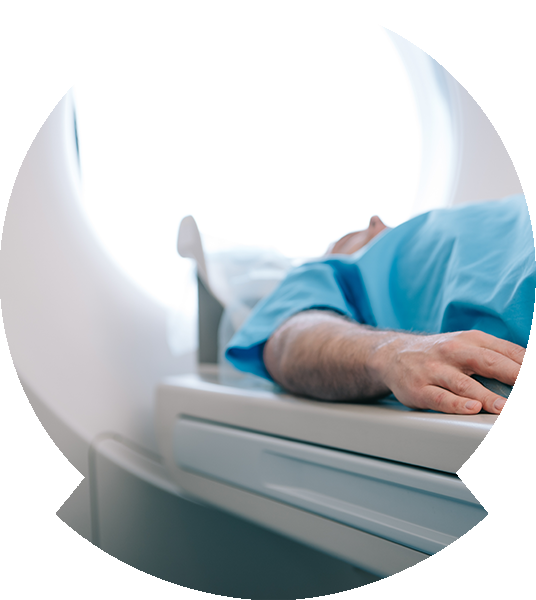Stress myocardial perfusion scintigraphy
Stress myocardial perfusion scintigraphy
Myocardial perfusion scintigraphy is a specialised diagnostic imaging technique used primarily to assess myocardial blood flow. This non-invasive procedure provides information about the blood supply to the heart muscle and the function of the heart muscle cells.
The test involves the intravenous administration of a small amount of a radioactive tracer called MIBI. This tracer binds selectively to heart muscle cells that are actively using the blood supply. The tracer effectively marks areas of the heart where blood flow is being actively used.
The test follows a one-day protocol, during which the patient receives regadenoson intravenously or by cycling. After the injection, images of the heart are taken using a special camera called a SPECT mode gamma camera. These images show the perfusion of the heart muscle and provide valuable information about the blood supply to the heart muscle. Areas of reduced perfusion may indicate damage or dysfunction of heart muscle cells, which is common in conditions such as ischaemic heart disease.
The results of myocardial perfusion scintigraphy can help clinicians confirm or exclude diagnoses, guide treatment decisions and monitor disease progression over time.
In summary, myocardial perfusion scintigraphy is a powerful tool for the clinical evaluation of conditions affecting myocardial perfusion, providing patients and healthcare providers with valuable insight into the pathophysiological background of cardiac disease.

Contact
If you have any questions, please contact us by e-mail or phone: info@scanomed.hu
ScanoMed Budapest
PET-CT examinations financed by the NEAK: (+36) 1 422 3880
Private PET-CT examinations: (+36) 30 639 3500
ScanoMed Debrecen
Examinations financed by the NEAK: (+36) 52 526 020
Private PET-CT examinations: (+36) 30 206 8922
SPECT-CT and isotope therapy exminations: (+36) 30 648 1828